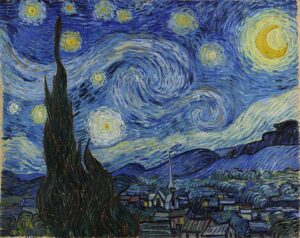
I came across our word in an essay about the life and work of Wilfred Thesiger, whose book The Marsh Arabs I’m now reading. I knew it means a corruption of another’s writing, but I’d forgotten the etymology. It’s not a word I use frequently, so I needed a refresher.
One nice thing about our word involves its straightforward etymology as a neologism, though one from the early 19th Century. Here’s the complete entry from Merriam Webster Online:
In 1807, a new edition of the works of William Shakespeare hit the scene in England. Titled The Family Shakespeare, the collection of 20 of the Bard’s plays in four volumes was at first anonymously edited, and promised in its preface to “remove every thing that could give just offence to the religious or virtuous mind.” Though the sanitized project later became a public sensation (and a source of literary derision) after its expanded, ten-volume second edition was published in 1818 and credited solely to physician Thomas Bowdler, the original expurgation was in fact the work of his older sister Henrietta Maria “Harriet” Bowdler, an accomplished editor and author. Within a year of the younger Bowdler’s death in 1825, bowdlerize had come to refer to cutting out the dirty bits of other books and texts—testimony not only to the impact of his eye for impropriety, but to those of his sister Harriet as well, though her efforts were obscured by history, if not technically bowdlerized.
How many other less famous works have been “cleaned up” by survivors or literary executors? It’s a form of posthumous censorship, generally, though I think of a pop-culture example where the creators were very much alive. When the Rolling Stones appeared on Ed Sullivan’s variety show in 1967, they had to change the lyric “let’s spend the night together” to “let’s spend some time together” and if you can stomach the stupid commercials at YouTube, you can still enjoy Mick Jagger’s eye-rolling when he sings “time.”
Bowdler lives. Damn it. There, I cursed, using the very word that proved so infamous when Clark Gable uttered it in 1939, for Gone With the Wind. At Wikipedia, you can read about the controversy. It took a revision of the Production Board’s code to permit two banned words, “hell,” and “damn” into films.
Today we’ve thankfully moved far from those times, though have we gone too far? Students drop profanities like Autumn leaves as they walk across campus and, for that matter, we have a Presidential Administration full of people who curse like drunken sailors.
I love creative cursing, but I’m trying to bowdlerize my speaking habits. It’s *&%ing hard to do! This Thanksgiving, let’s be thankful for every curse we avoided in 2025 and keep that good habit going.
Wait. I have a solution. Let’s all curse like Yosemite Sam, nemesis of Bugs Bunny. Endure the commercials again to hear what I mean. No bowdlerizing needed.
Incidentally, you need not spell our word with a capital B.
Send any razza-flappin’, flip-floppin’, flig-flippin’ words and metaphors my way by e-mailing me (jessid -at- richmond -dot- edu) or leaving a comment below.
Consarn it!
Want to write a guest entry? Let me know!
See all of our Metaphors of the Month here and Words of the Week here.
Image: Jagger, mid-eye-roll screen cap from YouTube.

